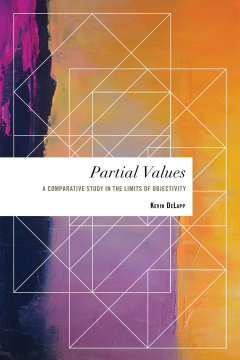
Additional Information
Book Details
Abstract
When, if ever, is it permissible to afford special consideration to friends and family? How can we strive to be objective in our thinking, and is this always a feasible or appropriate aim?
This book examines the categories of impartiality and objectivity by showing how they frame certain debates in epistemology, moral psychology, and metaethics, arguing that many traditional conceptions of objectivity fail to capture what is important to our identities as knowers, social beings, and moral agents. A new thesis of ‘perspectival realism’ is offered as a critique of strong objectivity, but in a way that avoids radical subjectivism or relativism. Locally-situated identities can provide their own criteria of epistemic and moral justification, and we may aspire to be impartial in a way that need not sacrifice particular perspectives and relationships. Arguments throughout the book draw heavily on resources from classical Chinese philosophy, and significant attention is given to applications of arguments to
concrete issues in applied ethics, cross-cultural anthropology, and political science.
Combining rigorous argumentation with an accessible writing style, Kevin DeLapp in Partial Values has articulated a novel approach to accommodating the competing demands we experience—for objectivity and impartiality on the one hand, and for subjective and particularistic responsiveness on the other—within epistemic, moral, and metaethical domains. His readings are generous, his critiques important, and his proposals insightful.
Jeremy E. Henkel, Assistant Professor of Philosophy at Wofford College
This book carefully and insightfully explores how relevant resources from two major different philosophical traditions, the Western and Chinese ones, can make joint contribution to our understanding and treatment of the intriguing issue of objectivity and partiality concerning epistemic and moral values, from the vantage point of the suggested perspectival realism.
Bo Mou, Professor of Philosophy at San Jose State University and author of Substantive Perspectivism
Kevin DeLapp is Fleming Professor of Philosophy at Converse College. He is the author of Moral Realism (2013) and editor of Lying and Truthfulness (2016).
Written with DeLapp’s characteristic clarity and precision, Partial Values: A Comparative Study in the Limits of Objectivity is a thoroughly interesting and timely book. Through the development of his ‘Perspectival Realism’ Delapp reminds us of the philosophical complexities at the heart of cross-cultural encounter. Researcher, teacher and student will find this a fascinating and rewarding read.
Andrew Fisher, Associate Professor of Philosophy at the University of Nottingham
Expansive but written with great clarity, Partial Values is set to meet a new and wide need in philosophy: resources that will allow those trained in Western philosophy to engage with Chinese thought. But it will also be appealing to thinkers generally. This book is a great guide for readers who merely want to think about truth. After all, thinking about truth from just one perspective does not seem like thinking about it much at all!
Jennifer Baker, Associate Professor in the Department of Philosophy at the College of Charleston
Table of Contents
| Section Title | Page | Action | Price |
|---|---|---|---|
| Partial Values | Cover | ||
| Contents | v | ||
| Introduction | vii | ||
| 1 Perspectival Realism | 1 | ||
| 1.1 Craving Objective Reasons | 1 | ||
| 1.2 A Partial History of Impartiality | 4 | ||
| 1.3 “We Are Amphibious Creatures” | 16 | ||
| 2 Epistemic Objectivity | 29 | ||
| 2.1 McDowell’s Seesaw | 30 | ||
| 2.2 Contextualizing Standpoint Theory | 40 | ||
| 2.3 Confucian Role Epistemology | 49 | ||
| 3 Ethical Objectivity | 67 | ||
| 3.1 Beyond Trolleys: Particularism and Care | 68 | ||
| 3.2 Xiao and Jian’ai: Partiality and Inclusivity | 79 | ||
| 3.3 “Seizing Hold of Extremes” | 89 | ||
| 4 Metaethical Objectivity | 107 | ||
| 4.1 Realism and Relativism: Intuitions and Explananda | 108 | ||
| 4.2 Between Sensibility and Independence | 122 | ||
| 4.3 A Daoist Comparison | 133 | ||
| Conclusion | 147 | ||
| Bibliography | 153 | ||
| Index | 169 | ||
| About the Author | 173 |
